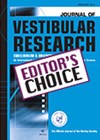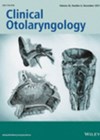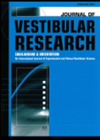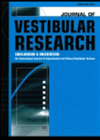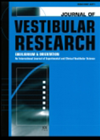
Journal Reviews
Obstructive sleep apnoea in common vestibular disorders
The importance of getting a good night’s sleep is often acknowledged but may be particularly difficult to achieve for those with obstructive sleep apnoea (OSA). In addition to high blood pressure, increased risk of stroke and depression, balance problems may...
Treatment options for vestibular neuritis: systematic review and meta-analysis
Vestibular neuritis (VN) is the third most common cause of peripheral vertigo. VN has been postulated to have viral aetiology and historically it was treated with steroids, until 2011 when a Cochrane review demonstrated lack of robust evidence behind this...
Does the season affect the diagnosis of vestibular disorders?
There are mixed results in the literature regarding seasonal variation in the presentation of various peripheral vestibular disorders. In this large population study involving over 20,000 patients recruited from 116 ENT practices across Germany, the authors analysed the demographic characteristics...
Do steroids improve outcome in acute vestibular neuritis?
The role of steroids in short and long-term recovery from acute vestibular neuritis has been a subject of debate for several years. The authors reported findings of a prospective randomised trial in 60 adult patients. Inclusion criteria were acute vertigo...
Is clinical HIT as good as vHIT in the emergency room?
Establishing the cause of acute vestibular syndrome (AVS) is critical in the first few hours of presentation in the emergency department. The first question to ask is, “is it due to a peripheral vestibular pathology or a stroke?” This is...

